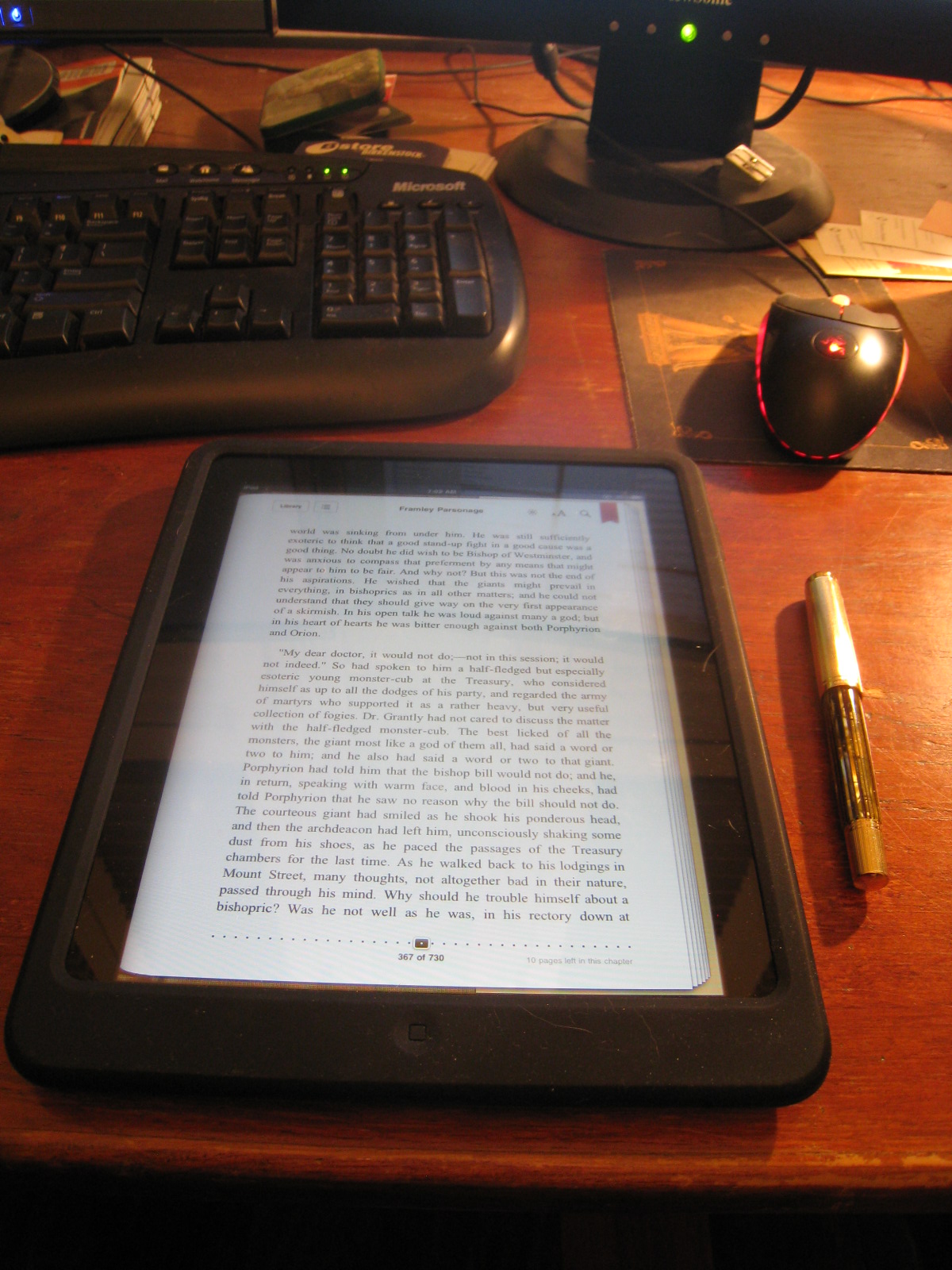 Bobby Newman has a great post getting a lot of traffic today, titled Should Libraries Get Out of the eBook Business. I commented on her post, but wanted to include my thoughts here as well, with the idea of expanding upon them in the near future. My comment:
Bobby Newman has a great post getting a lot of traffic today, titled Should Libraries Get Out of the eBook Business. I commented on her post, but wanted to include my thoughts here as well, with the idea of expanding upon them in the near future. My comment:
The problem is DMCA and what it stops us from doing in terms of fair use and the first sale doctrine. The solution is to get libraries and library organizations to use whatever muscle they can to get DMCA overturned or to get exceptions written in for fair use and first sale cases.
And while that was very easy and simple to write, I realize that it may well be impossible, or at least very difficult, to accomplish.
In the meantime, I agree to the extent that we should stop paying whatever publishers ask us to pay for the right to take it up the [censored]. Accepting rising costs and increased restrictions just encourages the publishers to punish us more, and we’re not creating a space from which we can negotiate.
I’m an ePatron, though. If my public library didn’t have eBooks, they’d never see my patronage. What I’d love to see happen is some sort of coordinated rebellion; MARC records loaded for ebooks from publishers who are being unreasonable that leads to a website explaining exactly how that publisher sucks and with concise, clear instructions on how to find and download their books illegally from torrent sites.
It’s not a perfect solution, clearly. But it would sure be nice to stick it to them, just a little bit.
2 replies on “Time for Library eBook Rebellion”
Love it – the Subversive Librarian strikes again. We have power – especially to lead patrons to back doors.
Generally I think that you are right – we need to be more active and make the public aware of the deteriorating ebook situation. This is particularly important as the numbers cited in the first article about ereader/tablet use are just likely to go up as time passes (and isn’t almost 30% pretty high considering that these things didn’t exist a decade ago?) and libraries without eofferings risk being abandoned by potential patrons.
I fear that any decision to ‘sit it out’ and not buy ebooks until the problem is resolved may lead to libraries not really having a seat at the table and being completely marginalized in the ebooks discussion. If it can be shown that libraries are interested in working towards a reasonable solution and that they are major buyers of ebooks then maybe they might have a little more influence with vendors, policy makers, and members of the book consuming public (many of whom are likely voters).
Anyway, the whole issue is definitely scary and needs immediate attention.